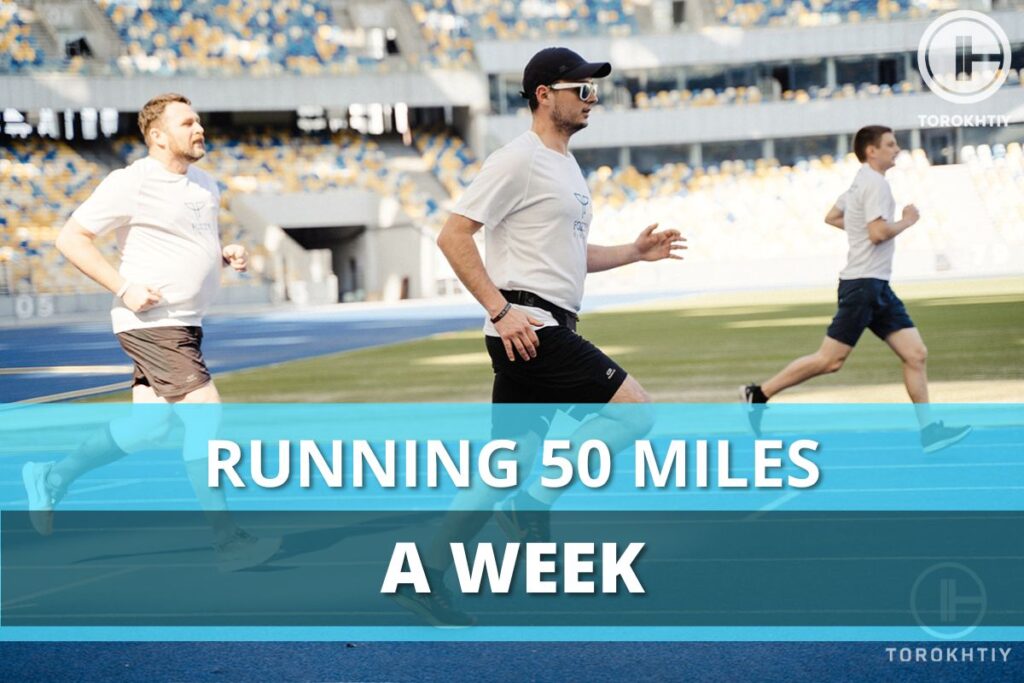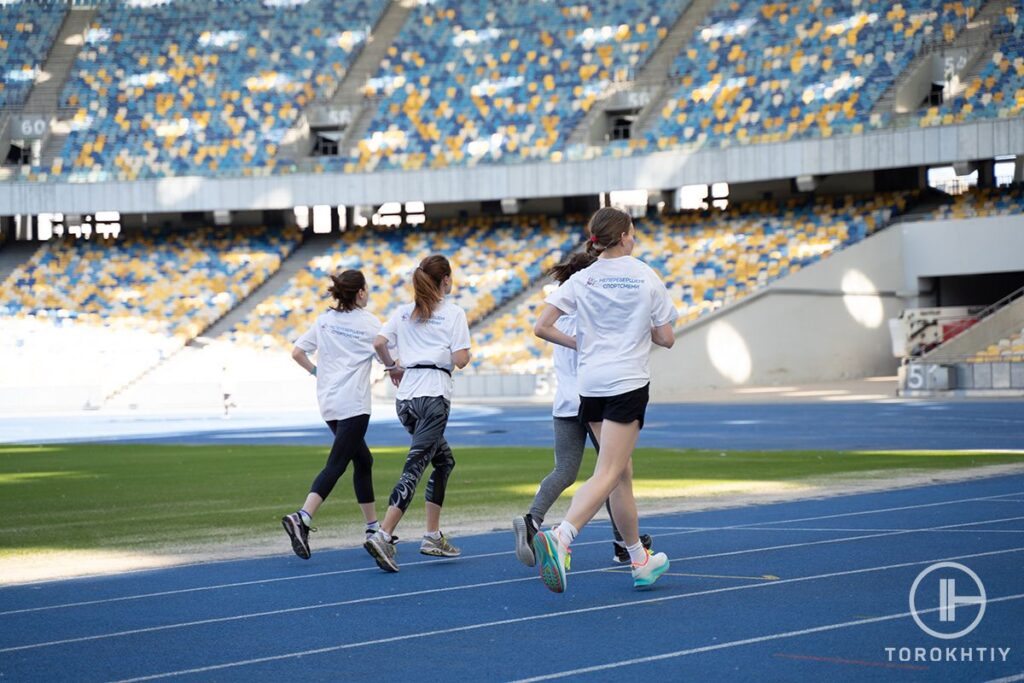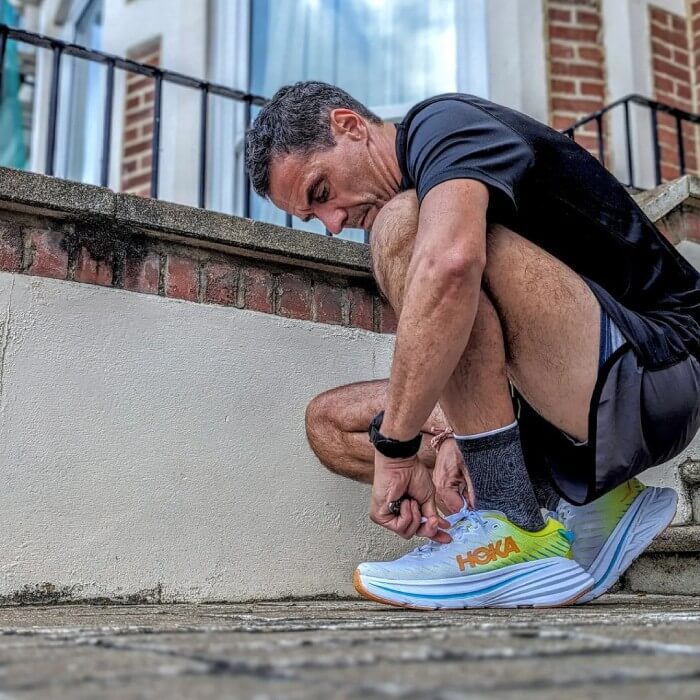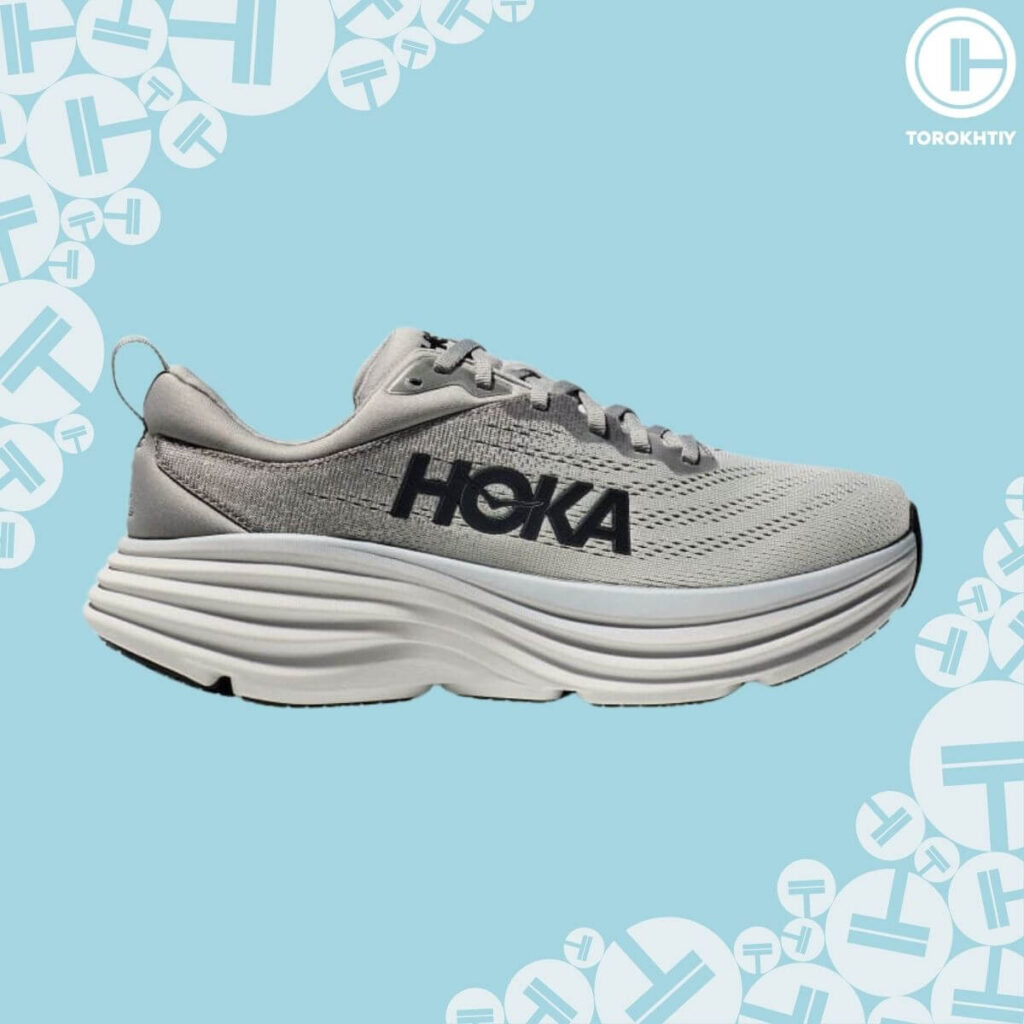Running 50 Miles a Week: The Ultimate Guide to Endurance and Well-being
Author:
Unlock your full potential by engaging with our experts and community! Have questions about your fitness journey or looking for expert advice on weightlifting techniques? Don’t hesitate — leave a comment below and Oleksandr Zagrebelnyi will provide a personalized answer and insights to help you reach your goals.
Torokhtiy is reader-supported. Some links are affiliate links, and we may earn a commission at no extra cost to you. See our disclosure page for details.
Embark on a remarkable fitness journey to run 50 miles a week. Discover the physical and mental benefits of this rigorous routine and determine if it’s the right choice.
Yes, running 50 miles a week is a challenging but attainable goal. With a structured training plan, appropriate nutrition, and ample rest, you can gradually increase your mileage and achieve this feat. Remember to prioritize injury prevention and always seek guidance.

Is Running 50 Miles A Week Good?
Running 50 miles a week is quite an accomplishment, but whether it’s considered “good” depends on a few things. Factors like your fitness level, running experience, goals, and overall health play a role. If you’re an experienced runner, jogging 50 miles per week can help build endurance and improve your cardiovascular fitness.
However, if you’re just starting out or not used to high mileage, it’s important to gradually increase your distance to avoid getting injured. Additionally, consider your personal goals.
Tips From the Champ
If you’re training for a marathon or ultramarathon, 50 miles per week might be necessary, but for general fitness or weight loss, it may not be needed.
Running Coach Nike Run Club Kyiv
3 Benefits Of Running 50 Miles A Week
Running 50 miles a week can bring about a wide array of positive impacts on both your physical and mental health. Let’s delve into some benefits of running 50 miles a week in more detail:

✅ Better Heart Health
Engaging in regular long-distance running strengthens the heart and enhances cardiovascular endurance. This lowers the risk of heart disease, high blood pressure, and stroke.
✅ Stronger Bones
Running is a weight-bearing exercise that places stress on the bones, stimulating them to become stronger and denser. Consistent running helps prevent conditions like osteoporosis and improves overall bone health.
✅ Improved Mental Well-being
Studies indicate that running reduces symptoms of depression and anxiety, elevates mood, and enhances overall mental health. The release of endorphins during exercise contributes to feelings of happiness and relaxation.
3 Disadvantages Of Running 50 Miles Per Week
Is running 50 miles a week too much? While running 50 miles a week offers numerous benefits, there are also potential downsides to consider:

❌ Higher Risk of Injury
Running long distances can strain your body, especially your joints and muscles. Without proper rest and recovery, you may be prone to overuse injuries like shin splints, stress fractures, or tendonitis.
❌ Time Commitment
Running 50 miles a week requires a significant amount of time. Depending on your pace, it could take several hours each week. Balancing running with other responsibilities can be challenging.
❌ Mental Fatigue
Regularly running long distances can lead to mental fatigue and burnout. Staying motivated and disciplined at such a high mileage can be mentally draining.
How long does it take to run 50 miles?
The amount of time it takes to run 50 miles can differ based on various factors. These include a runner’s fitness level, the speed at which they run, and the type of terrain they’re traversing.
Highly trained professional runners, who have undergone extensive training, might be able to cover the distance in approximately 6 to 7 hours. They possess the necessary endurance, speed, and experience to maintain a swift pace over a prolonged period.
Recreational runners or individuals who are relatively new to long-distance running can expect to finish in approximately 9 to 12 hours or even longer.
Best Way To Run 50 Miles Per Week: Running plan
The most effective way to safely integrate 50 miles of running into your weekly routine is by following a structured training plan. Here’s a simple outline of a 50 miles a week running plan:
| Days | Exercises |
|---|---|
| Monday | Start the week with a comfortable, easy-paced run covering 8 miles. |
| Tuesday | Incorporate speed work into your training by doing intervals. Aim for 8-10 intervals, covering a total of 6 miles. |
| Wednesday | Take a day off from running to allow your body to recover. |
| Thursday | Cover 7 miles at a comfortable pace, and focus on maintaining good form. |
| Friday | Warm up with an easy jog, then run at a comfortably hard pace for 4-5 miles. |
| Saturday | Cover 6 miles at a relaxed, conversational pace. |
| Sunday | Aim to cover 12 miles at a comfortable pace. |
This 50 miles a week running plan gradually increases mileage, incorporates speed work and tempo runs, and provides rest and recovery days. It is important to listen to your body, adjust the plan as needed, and prioritize proper nutrition, hydration, and rest for optimal results.
Hoka Bondi 8
- Material: Breathable and supportive mesh upper
- Sole Material: Full-length EVA midsole for maximum cushioning
- Outsole (tread feature): Durable rubber outsole with a unique lug pattern
- Drop: 4mm
- Season: Suitable for all seasons
- Special Features: Exceptional cushioning and comfort
- Size: Available in various sizes
- Type: Maximum cushioning running shoe
If you want excellent running or walking shoes or just footwear you’ll be comfortable in, you can’t go wrong with the Hoka Bondi 8.
It’s been upgraded and now they have lighter, softer materials and a new extended heel design. The heel design gives a super soft, balanced feeling from th emoment your heel hits the ground to when you push off with your toes.
As far as the weight goes, it’s around 10.80 ounces, and the heel drop is 4 mm. They’re not too heavy and the lower drop is a good balance between cushioning and feeling connected to the ground.
The Bondi 8 is focused on cushioning and keeps things simple. There’s a good amount of support without any extra stuff that you don’t really need and that would only jack up the price. Take the rear crash pad, for example – it makes for a soft, smooth ride, which is perfect if you like to run outdoors.

The upper part is made of engineered mesh, which is breathable and keeps your feet cool and dry. The tongue and collar have memory foam and mold to your foot shape. All of these features make the fit snug but flexible, which is exactly what you would want.
The Bondi 8 is eco-friendly because it uses recyclable materials in parts like the mesh and the sockliner. Plus, the shoes are completely vegan, which (if that’s important to you) is nice!
Frequently Asked Questions about Running 50 Miles a Week
Is running 50 miles a week too much?
Running 50 miles a week is definitely a high mileage and way too much for many individuals, especially beginners or those prone to injuries. It depends on factors like fitness level, experience, and injury history.
Will I lose weight running 50 miles a week?
Running 50 miles a week can aid in weight loss as it burns calories and increases overall energy expenditure. However, it’s important to note that weight loss is influenced by various factors, including diet and individual metabolism.
Final Thoughts on Running 50 Miles a Week
To summarize, running 50 miles a week is a challenging yet fulfilling pursuit. It improves your heart health, aids in weight control, strengthens your muscles and bones, and enhances your overall well-being. Follow a well-designed training plan and prioritize recovery to achieve your running goals safely.
References:
- Running and aerobic exercises // NHS: https://www.nhs.uk/live-well/exercise/running-and-aerobic-exercises/
- Exercise and the Heart // Johns Hopkins Medicine: https://www.hopkinsmedicine.org/health/wellness-and-prevention/exercise-and-the-heart
- The Ontario Cohort Study of Running-Related Injuries // JAMA Internal Medicine: https://jamanetwork.com/journals/jamainternalmedicine/article-abstract/612508
- Physical activity guidelines for adults aged 19 to 64 // NHS: https://www.nhs.uk/live-well/exercise/exercise-guidelines/physical-activity-guidelines-for-adults-aged-19-to-64/
- Photos by Torokhtiy Media Team.
Why Trust Us?
With over 20 years in Olympic weightlifting, strength training, nutrition coaching, and general fitness our team does its best to provide the audience with ultimate support and meet the needs and requirements of advanced athletes and professional lifters, as well as people who strive to open new opportunities and develop their physical capabilities with us.
By trusting the recommendations of our certified experts in coaching, nutrition, and sports training programming, as well as scientific consultants, and physiotherapists, we provide you with thorough, well-considered, and scientifically proven content. All the information given in the articles concerning workout programming, separate exercises, and athletic performance, in general, is based on verified data.
The product testing process is described in more detail here.
Oleksandr is a running coach and member of the Nike Run Club coaching team for 8 years. A participant in national and international competitions at distances from one kilometer to the ultra trail. Owner of mountain trail running camps. Nowadays Oleksandr is responsible for creating running training programs for athletes of various levels, coaching personally offline and online, conducts trail running camps in the mountains, participates in competitions.




Still have questions after reading our article? Unlock your full potential by engaging with our experts and community! Don’t hesitate — leave a comment below and Oleksandr Zagrebelnyi will provide a personalized answer and insights to help you reach your goals.